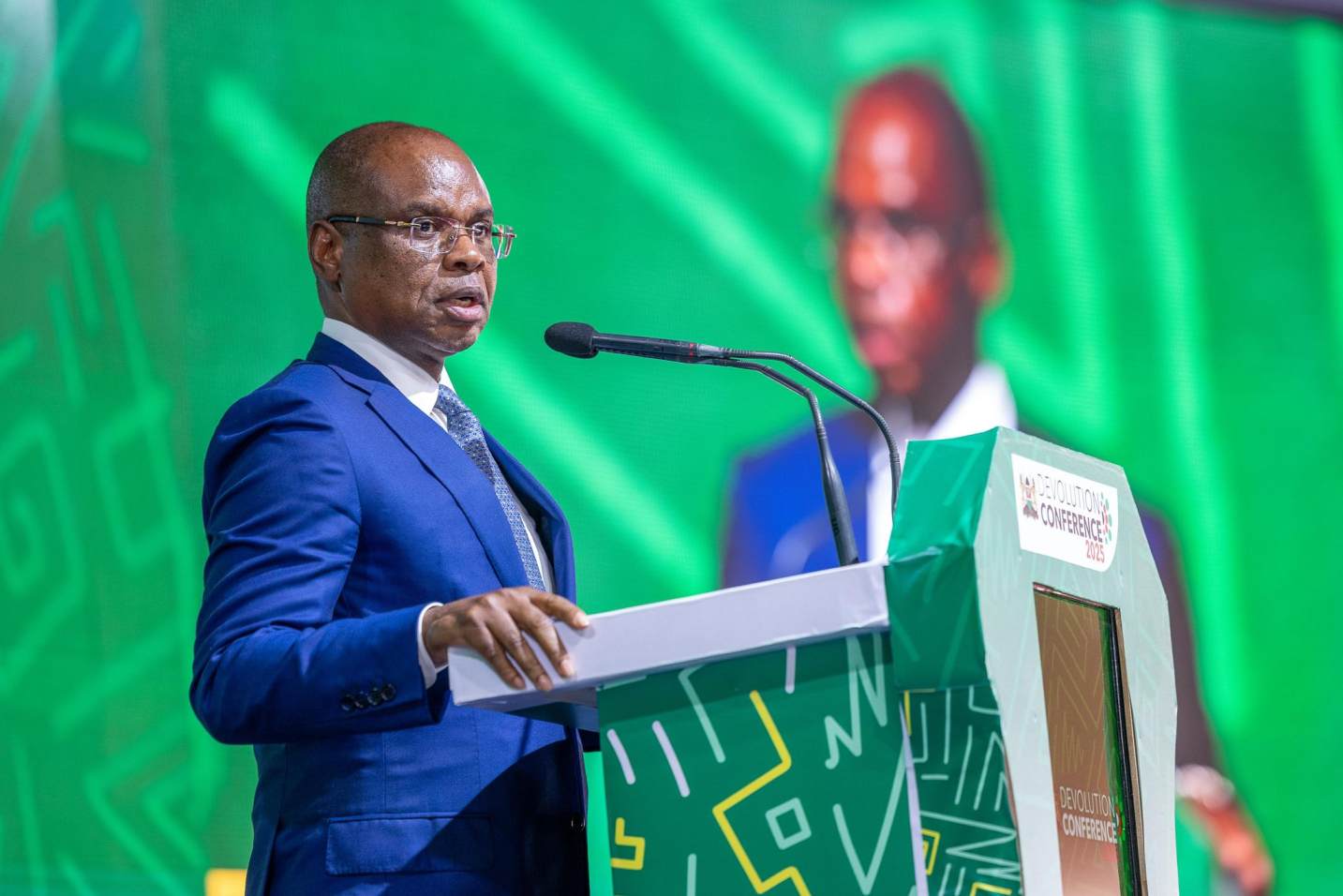Speaker Kingi rejects Ruto’s bribery claims, says no formal complaints received

The President had claimed that MPs and senators solicited bribes from government officers appearing before parliamentary committees, alleging that Cabinet secretaries and governors had been victims of extortion.
Senate Speaker Amason Kingi has dismissed allegations of bribery and extortion within the Senate, stating that no formal complaints have been filed against any legislator.
Speaking on Wednesday, Kingi said the Senate leadership had reviewed the accusations made by President William Ruto at the 2025 Devolution Conference last week and noted a lack of specific details.
“The leadership of the Senate has noted that the allegations have not included material particulars, including the specific individual senators against whom allegations of bribery are made,” Kingi said.
The President had claimed that MPs and senators solicited bribes from government officers appearing before parliamentary committees, alleging that Cabinet secretaries and governors had been victims of extortion.
However, the Speaker clarified that no evidence or official complaint linking any senator to bribery or extortion has been submitted to him.
“For the Senate to invoke this framework, it is most helpful that the information available to the executive and other organs and agencies or other persons is shared with the Senate. As the Speaker of the Senate, I have not received any complaints or information relating to bribery or extortion, or other corrupt practice against a senator from a member, a member of the executive, ministries, departments, or agencies of government, a governor, or other county government agencies,” he said.
“If I do receive such a complaint, I am obligated, and I will take the necessary stern actions without delay.”
Kingi emphasized that senators hold positions of high responsibility and are constitutionally required to uphold integrity.
“Senators are called to a very high office of responsibility and accountability and are required under the Constitution to live up to a very high standard of integrity and accountability. This is the thrust of a number of provisions of the Constitution, including Articles 1, Article 3, and Article 10, as well as Chapter 6 on the leadership and integrity of state officers,” he said.
He also noted that senators take an oath to “obey, respect, uphold, preserve, protect, and defend the Constitution,” making allegations of bribery and extortion serious matters requiring urgent attention.
The Speaker called for coordinated efforts across all arms of government to fight corruption.
“To fight corruption requires a systematic and integrated approach in which all organs of the government collaborate and cooperate to the extent of their respective spheres. To this end, while there exist constitutional and statutory agencies for preventing, detecting, and prosecuting corrupt acts, and while the judiciary adjudicates on such matters, the legislature too has robust mechanisms for addressing the vice,” he said.
Kingi cited the Parliamentary Powers and Privileges Act as the legal framework for addressing misconduct by legislators.
“As you are aware, the Parliamentary Powers and Privileges Act, Cap 6 of the Laws of Kenya, has an elaborate framework for Parliament to deal with errant legislators. Section 15, subsection 5 of this Act, vests the Committee of Powers and Privileges, which is chaired by the Speaker, either of its own motion or as a result of a complaint made by any person, to inquire into the conduct of a member whose conduct is alleged to constitute breach of privilege in terms of Section 16, within 14 days of receipt of that particular complaint, and to make recommendations to the House for its appropriate action,” he explained.
The Speaker reminded senators that the law prohibits them from engaging in acts of corruption.
“Part of the conduct that is prohibited under this Act includes improper influence of Members of Parliament, fraud, intimidation, offer or promise of any inducement or benefit of any kind to a member in the performance of the member’s functions. It is prohibited for members to solicit, receive, or accept any fee, compensation, gift, reward, favour, or benefit of any kind for undertaking or forgoing to undertake their functions,” Kingi said.
On Tuesday, some senators had demanded that President Ruto be summoned to provide evidence for his claims, pressing for investigations and disciplinary action against colleagues accused of running a bribery scheme in parliamentary committees. They warned that failure to act could undermine public confidence in the Senate.
